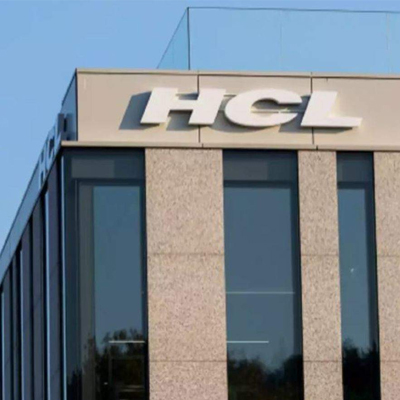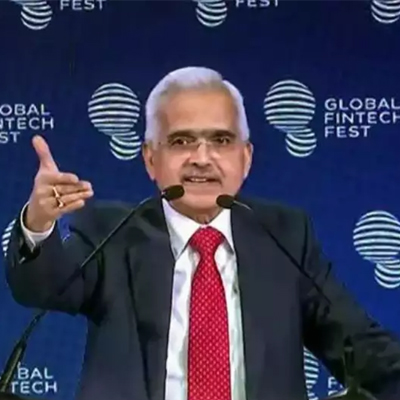Green Shoots: Sustainability now part of the Corporate Agenda for Indian Tech Companies

The 'SRR 4' building epitomises a transformative shift in India's tech industry, where environmental consciousness transcends profit metrics, embracing the paradigm of the 'green line.' In this technological hub, where innovation thrives, the focus extends beyond financial achievements to intricately woven environmental impact, evident in real-time metrics displaying carbon reduction, water conservation, and alternative energy use.
Intel's achievements highlight significant milestones. Smart lighting initiatives, operational since 2019, boast a saving of 2,750 MWh—equivalent to powering 573,000 computers for ten days. Water conservation efforts, with 131 megalitres rejuvenated, mirror the daily water needs of 188,000 homes.
Intel stands as a prominent advocate for this green movement, echoed by other tech giants in India's awakening to sustainable practices. Beyond financial considerations, the focus now revolves around the 'green line,' a commitment to mitigate environmental impact and contribute substantively to sustainable trajectories.
This shift signifies a poignant moment in India's tech landscape, acknowledging the responsibility to the planet amidst technological progress. Integrating sustainability metrics into corporate fabric represents a commitment to environmental stewardship, envisioning a future where technology and ecology harmoniously coexist, ushering in a new era of conscientious corporate behaviour.
Technological Giants Redefine the Green Campus Paradigm
Intel, SAP Labs, and Coforge, stalwarts in the corporate arena, have seamlessly embraced the concept of a green campus, intertwining it with their overarching sustainability objectives. Notably, technology assumes a pivotal role in this transformative pursuit. Intel India, as a paradigmatic example, deploys an intricate network of over 10,000 sensors meticulously designed to monitor and optimise temperature, lighting, energy consumption, and occupancy levels within its edifices.
The continuous influx of 24x7 data undergoes scrupulous analysis, serving as the bedrock for refining building performance and judicious resource conservation. SAP Labs India, on the other hand, harnesses technology not merely for sophisticated building management systems and energy-efficient apparatus but as the linchpin enabling data-driven decision-making, charting a course towards sustainable outcomes.
Inculcating a Sustainable Mindset, Intel India has upheld its status as a net water-positive site for consecutive two years. A staggering volume of approximately 5 million gallons of water undergoes a meticulous recycling process annually across its sprawling campuses. The water, sourced from rainwater harvesting and in-house sewage treatment facilities, finds purpose in landscape irrigation, toilet flushing, and industrial applications. Notably, the concerted emphasis extends to the realm of alternative energy, exemplifying the comprehensive approach these industry leaders adopt in steering towards an eco-centric future.
Spearheading Environmental Transformation
Commencing with a 75:25 ratio, drawing 75% from the grid and 25% from alternative sources, Intel has undergone a remarkable transformation. Presently operating at a 35:65 ratio, the campus relies on the grid for less than 35% of its power needs, generating 65% from eco-friendly sources such as solar panels and fuel cells.
The campus boasts a cutting-edge solid oxide fuel cell installation, catering to the power requirements of buildings, labs, and data centers. A holistic waste management strategy includes recycling food and landscaping waste into organic manure and fostering sustainable gardening practices. Food waste is ingeniously converted into biogas, generating 20 kg per day, significantly contributing to the kitchen's gas requirements.
The company is committed to corporate responsibility and sustainability through its RISE strategy. The ambitious goals set for 2030 encompass net positive water use, 100% renewable energy across global manufacturing, a substantial reduction in carbon emissions, and a comprehensive circular economy approach for manufacturing waste streams.
In a similar vein, Coforge's Greater Noida campus and SAP Labs India's facilities exemplify a commitment to sustainable practices. LEED-certified as per US Green Building Council standards, these structures align seamlessly with global Sustainable Development Goals. Coforge's expansive 25-acre campus, adorned with 60% green cover, exemplifies environmental responsibility.
The campus incorporates 15 rainwater harvesting pits, decomposers, effluent plants, energy-efficient air conditioning systems, and sensor-based LED lighting to minimise greenhouse gas emissions. Waste from cafeterias undergoes recycling, rendering it a zero food-waste campus. On-site compost plants contribute to sustainable landscaping practices.
The inclusive nature of sustainability transcends individual actions to foster a culture and systems that protect natural resources, combat global warming, enhance environmental systems, and promote societal equality. The company achieved a 19% reduction in scope-1 greenhouse gas emissions in FY23, reflecting a commitment to environmental stewardship. E-waste disposal adheres to rigorous standards, ensuring responsible recycling or charitable contributions to local establishments, echoing the company's holistic approach to sustainability.
Intel and SAP Labs Spearhead Eco-centric Corporate Realms
Nestled in Bengaluru's Whitefield, the tech epicentre, SAP Labs exemplifies sustainability with its green campus hosting 9,400 employees. Boasting a remarkable 60% green cover and zero single-use plastic, the campus relies on an impressive 98% green energy. The upcoming Devanahalli campus aims to be water-positive and carbon-positive by 2025.
Silent solar panels contribute 11% of energy needs, reducing annual carbon emissions by 680 tonnes. Innovative technologies like HVAC systems and ethernet-powered lighting emphasise the commitment to minimising energy and water consumption. SAP Labs diligently pursues carbon neutrality targets, aligning with global goals to achieve net-zero emissions by 2030.
Beyond infrastructure changes, transformative initiatives include digitising food coupons, adopting digital printing, and sourcing local food. Internal carbon pricing for flights aligns with the goal of net-zero emissions. Financially, these green initiatives draw from operational budgets and strategic planning, not relying on corporate social responsibility funds.
Beyond financial considerations, green campuses offer enduring benefits like reduced operational costs and positive stakeholder engagement. Sustainability becomes a potent tool for talent attraction, reflecting a societal shift where individuals seek employers aligned with their values.
SAP Labs India's commitment to campus sustainability, while not consciously driven for brand enhancement, naturally positions it as an appealing workplace for those inclined toward meaningful impact through their professional endeavours.
Intel mirrors this sustainability drive with a dedicated employee resource group comprising over 50 members fervently engaged in diverse programs, contests, and volunteer initiatives focused on energy and environmental conservation. A profound illustration of collective action, last year witnessed Intel employees planting 3,000 saplings on the outskirts of Bengaluru. Gokul Subramaniam, President and Vice President of Client Computing Group at Intel India, underscores the imperative of collective action, fostering an ecosystem where passionate employees and partners collaborate to achieve shared sustainability goals.
.jpg)
.jpg)
.jpg)
.jpg)



